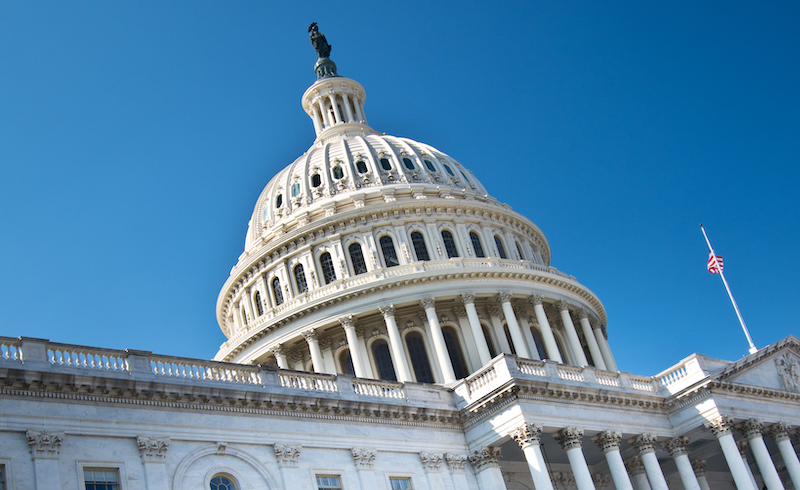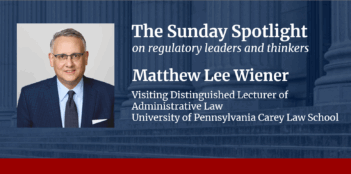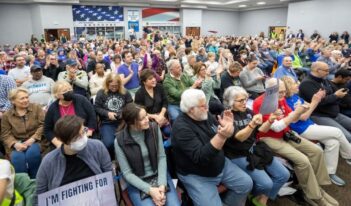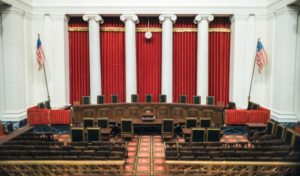
Mass comments policy should consider agencies’ roles as apolitical policymakers.
“Apolitical”—or being disinterested and uninvolved in politics—is a naïve, anachronistic description of the stance of regulatory agencies these days. Instead, critics argue that agencies are rocked by political interference fomented in backrooms rather than being “apolitical.”
But it is too early to give up on the foundational vision that agencies are delegated substantial authority by Congress to make objective, science-based decisions to protect public health, worker and consumer safety, and the environment, among other goals Americans hold dear. And, as obscure as the debate over mass comment policy may seem, it has a significant role to play in that revival.
The public is ambivalent about political interference, whether it comes from the White House or self-serving members of Congress. Most people would agree that elections have consequences and that popularly elected Presidents have great influence on the outcome of administrative decisions. But they might also say that the exercise of political influence is too often a nasty affair that takes place largely in the shadows and is engineered by business lobbyists from the private sector.
This ambivalence plays out in fascinating ways in the ongoing debate over how agencies should consider mass comments. The spectrum of views veers between two extremes. At one end is the belief that agency rule writers must evaluate not just the content but also the number of comments supporting or opposing a proposal as if it is running for office, figuratively speaking. At the other end is the conviction that agencies, in their role as dispassionate experts, should only consider comments containing relevant empirical, technical, scientific, or legal arguments. Under which vision would the public interest be better off?
The Trump Administration’s hostility toward government provoked a brain drain and a degree of demoralization that has been exceptionally debilitating. The White House attacks affected the usual suspects, with the U.S. Environmental Protection Agency serving its normal role as punching bag for conservatives. But agencies that are traditionally far from the firing line, such as the Centers for Disease Control, were also unable to fulfill their assigned missions, with devastating implications during the pandemic.
Problems in these agencies, however, originated well before the Trump Administration. The Centers for Disease Control and Prevention, for example, operates with a budget that is equivalent to the funding level it had twenty years ago, before SARS, Ebola, and H1N1. Half of these diminished funds go to the states to support state public health programs. Shortfalls in the overall federal budget led to the loss of 56,000 state public health jobs between 2008 and 2017.
Many Americans would agree that, given the pandemic and the growing threat of climate change, the country would be better off if the U.S. Environmental Protection Agency and the Centers for Disease Control were in top form. Unfortunately, many Americans also have general views of government that are quite bleak.
The missing link between these conflicting sentiments may be that many people are concerned about environmental problems but doubt that the government is up to solving them. If lack of faith in government is the reason why enthusiastic public support for government to protect public health and the environment does not translate into sufficient majorities in Congress to fully fund the agencies and pass legislation to strengthen their authority, what can be done about it?
An early rationale for the growth of the administrative state was that it would assemble the best and the brightest experts to make dispassionate, unbiased decisions about what government interventions are necessary and how they should be structured. The administrative state has strayed far from this idea, in part, because the civil service has been vilified and, in part, because even Presidents who believe in using it—including Barack Obama and Joe Biden—prefer to adopt its accomplishments as their own.
Indeed, throughout the war on government, not a single Democratic President defended the civil service affirmatively, consistently, and enthusiastically. Not one used his bully pulpit to explain to the American people what they got out of government. The only exception to their determination to hold the performance of their own executive branches at arm’s length was their praise for the military. But when some harmful piece of corporate malfeasance emerged, health, safety, and environmental regulators were excoriated for failing to prevent it.
The best way to revive the agencies that are so vital to our future is to educate the public about what they were intended to be originally: experts appointed to safeguard the public interest who consider the best empirical, technical, scientific, or legal arguments without worrying about politics. These experts would leave politics to the President who is elected.
Presidents would exert political influence when authorizing statutes provide the executive branch with discretion. (They often do not, especially in the environmental arena where statutes are detailed and prescriptive.) Agencies would stay in their intended lane, as expert users of science and law. Policy toward mass comments must be consistent with these goals.
Agencies should neither count nor consider multiple comments that reiterate a position on a regulatory issue without providing additional, verifiable information that is useful to the agency in considering the substance of a rulemaking proposal. This stance has three obvious advantages.
First, special interest groups would be discouraged from spending resources on campaigns to flood rulemaking dockets with repetitive pseudo-votes for one regulatory policy over another.
Second, agencies would be spared the burden of sifting through thousands—and even millions—of comments that are not meaningful to the decision they must make, except to exert pressure on them not to irritate one constituency or another for political reasons.
Finally, weeding out repetitive comments would also send the important message that agencies should focus on how substantive concerns supported by verifiable information will serve the public interest, as opposed to the ability of one interest group or another to mount “astroturfing” campaigns that disguise the identity of the group funding the effort by recruiting individuals to file comments they may not understand.
Public interest groups may oppose this approach because they believe that mass comments play an important role in ensuring the average citizen’s participation in regulatory policy. They also distrust the commitment of the civil service to resist intense lobbying by financially motivated corporate players in major regulatory battles.
But these arguments seem short-sighted. Fifty years into the great endeavor to use regulation to prevent injury to public health, the environment, and worker and consumer safety, rather than waiting for harm to occur, corporate interests are so well-funded and ubiquitous that public interest groups simply cannot keep up. Building back the civil service’s independence is the public’s best bet.
This essay is part of a six-part series entitled Mass Comments in Administrative Rulemaking.




